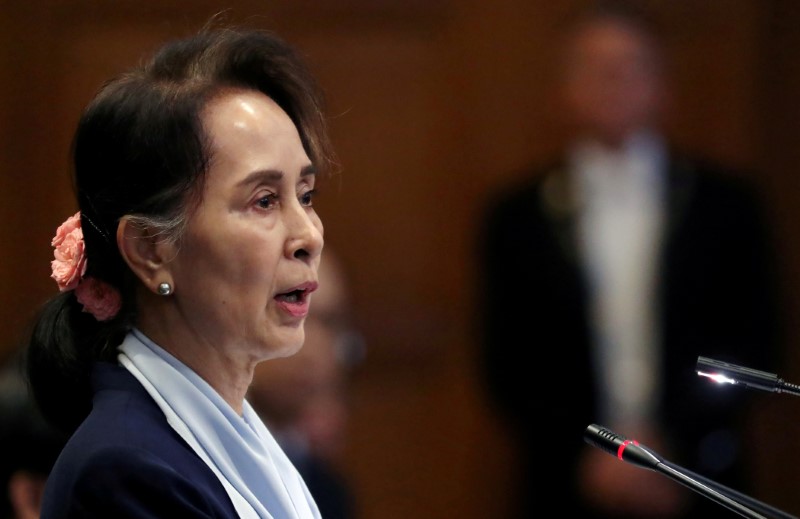YANGON (Reuters) - Myanmar leader Aung San Suu Kyi admitted on Thursday that war crimes may have been committed against Rohingya Muslims but denied genocide, saying refugees had exaggerated the extent of abuses against them.
In an opinion piece published in the Financial Times ahead of an initial International Court of Justice (ICJ) ruling on the issue, she said Myanmar was the victim of "unsubstantiated narratives" by human rights groups and U.N investigators.
She also said the country could itself punish perpetrators through domestic mechanisms.
The ICJ said it had jurisdiction to hear the case, which is seeking emergency measures to prevent Myanmar from committing genocide against the Rohingya minority.
"The international justice system may not yet be equipped to filter out misleading information before shadows of incrimination are cast over entire nations and governments," she said.
"Human rights groups have condemned Myanmar based on unproven statements without the due process of criminal investigation."
The ICJ is ruling on Thursday on a request by Gambia for emergency measures in Myanmar to halt violence immediately against Rohingya, to protect the ethnic minority and to preserve evidence of past abuses.
The small, mostly Muslim West African country launched the lawsuit in November at the highest U.N. body for disputes between states, accusing Myanmar of genocide against Rohingya in violation of a 1948 convention.
The case has not been heard in full and Thursday’s ruling deals only with Gambia’s request for so-called preliminary measures, the equivalent of a restraining order for states. It gives no indication of the court’s final decision, which could take years to reach.
More than 730,000 Rohingya fled Myanmar after a military-led crackdown in 2017 and were forced into camps across the border in Bangladesh. U.N. investigators concluded that the military campaign had been executed with “genocidal intent”.
During a week of hearings last month, Suu Kyi, Myanmar’s civilian leader, asked the ICJ to drop the case.
She conceded that disproportionate military force may have been used and civilians killed but said the acts did not constitute genocide.

This week, a government-appointed panel in Myanmar said that, while the military had probably committed crimes, there was no indication of an intent to commit genocide.